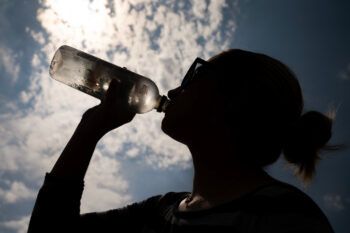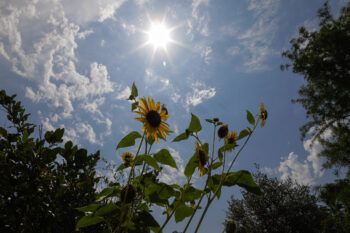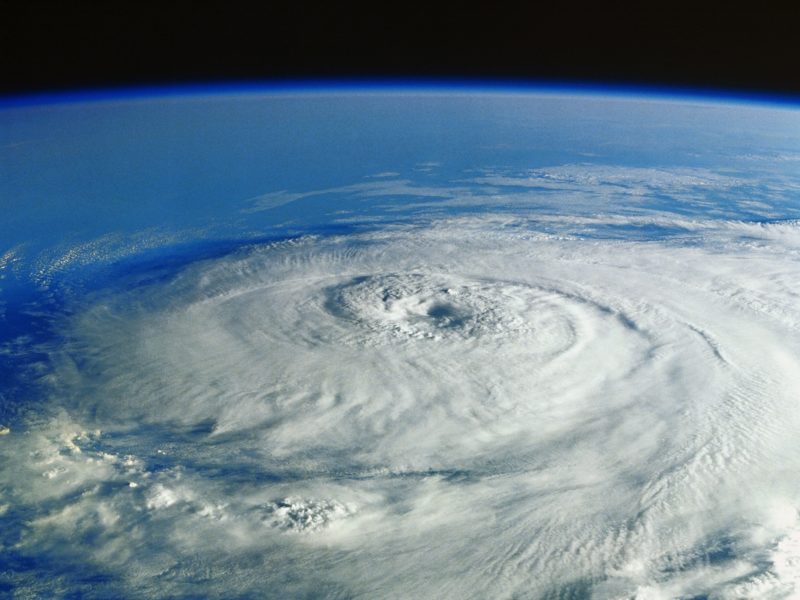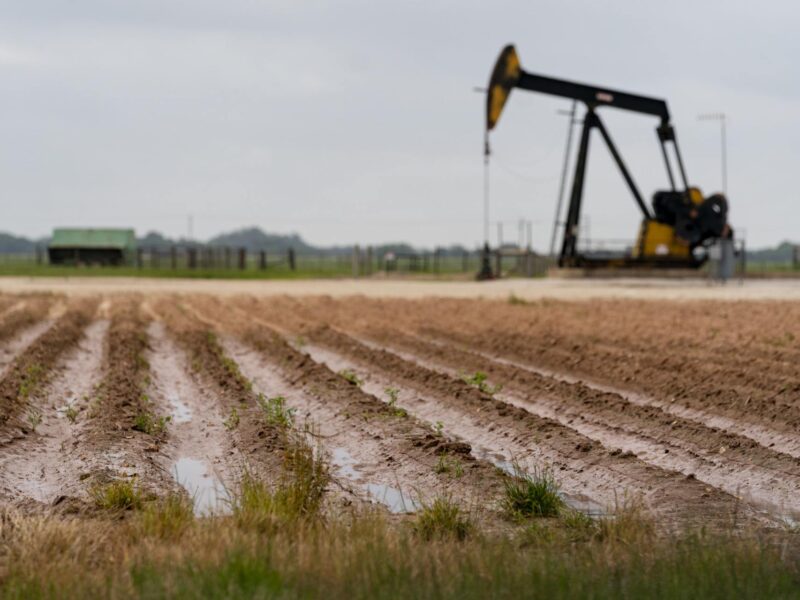How Can Texans Stay Safe And Healthy During The Ongoing Heat Wave?

Amid a historic heat wave blanketing much of the state in triple-digit temperatures — and matching all-time highs in cities like Laredo and San Angelo — Texans are at risk for a variety of heat-related illnesses and injuries.
The brutally high temperatures have been linked to at least one death, and ERCOT is warning that near-record-high electricity usage will push the state’s power grid to its limits.
With these conditions expected to persist even as far as the Fourth of July, it’s important for people of all ages to take charge of their health and wellness, says Dr. Jason McKnight, a clinical associate professor in the Department of Primary Care and Rural Medicine at the Texas A&M University School of Medicine.
McKnight recently spoke with Texas A&M Today to explain the signs of major heat-related illnesses such as heat exhaustion and heatstroke, and to lay out some practical tips for staying safe and cool as things continue to heat up this summer.
As we experience this period of dangerously high temperatures, what are some of the main health risks we should be aware of?
Any time you’re dealing with high temperatures — and particularly in this area of the state, coupled with high humidity — you always have to worry about what we call heat-related illness or heat injury.
Some of these heat-related illnesses are more of a nuisance, like a sunburn or heat cramps, which are pretty easily managed symptomatically. However, when you progress toward the more serious heat-related illnesses like heat exhaustion or heatstroke, those can result in hospitalization, long-term complications such as organ failure, and even death. So it’s something that we definitely have to take seriously and pay attention to.
What are some signs that you’re experiencing a serious heat-related illness?
With heat exhaustion, if you’re outside working or you’re exposed to the heat and you start feeling weak, extremely tired, possibly lightheaded, those are signs that you may be experiencing heat exhaustion. That’s your body’s warning sign that you need to get out of the heat and you need to take some aggressive and quick measures to improve the situation.
For that, I’d recommend getting out of the heat, shedding off any kind of excess clothing, actively cooling yourself with cool water, washcloths or ice, and then drinking lots of fluids. You’ve got to replenish the fluids that you’ve lost through sweating.
When you start moving into heat stroke you start seeing signs or symptoms of confusion, or being nonresponsive. If that’s happening to you, you’re probably not going to recognize it yourself, so ideally there’s someone around you that is recognizing it. That is definitely a medical emergency and you should call 911.

Who is most at risk for these kinds of conditions?
There are a few groups at higher risk of heat-related injury or illness. Those who are very young, like babies, are not fully able to regulate their temperatures as well as an adult. The elderly are definitely more at risk, as is anyone who has to exert themselves a lot in an outdoor setting in these temperatures, like construction workers, athletes or anybody who works outside during the summer.
Certain chronic illnesses can put you more at risk for these things, as can certain medications. There are a few different medication classes that affect your body’s ability to sweat and regulate your temperature. So if you’re on any of those medicines, you may be more likely to experience heat exhaustion or heatstroke even if the temperatures are not quite as high as what we typically worry about.

What steps should we take to protect our own health and safety?
If you can avoid being outside during the hottest times of the day, then do so. Usually 2 to 5 p.m. tends to be the hottest time of the day.
If you have to go outside, wear light, loose-fitting clothing. That’s going to allow you to sweat and dissipate heat more appropriately.
Stay hydrated. We always want to push water, that’s the best thing you can drink. However, if you are doing a lot of work outside and you’re sweating a lot, you’re also losing electrolytes. So you should be mixing in some electrolyte-containing drinks at some point, whether it’s sports drinks or any kind of water supplement with electrolytes.
Last, take frequent breaks. If you have to be outside and you have to be exerting yourself in this heat, try to take a break and get out of the heat at least every 30-60 minutes. Then make sure that you’re hydrated and you’re feeling okay before resuming activity.
How can we look out for the health and safety of our friends, neighbors and loved ones?
If you know somebody who’s out in the elements, working outside, and they seem like they’re not acting like themselves — maybe they even seem drunk, or they’re confused, or you find someone who’s completely nonresponsive — those are obvious reasons to call 911.
For the elderly and those groups that are at higher risk, even if you find them indoors — maybe their air conditioner isn’t working or they were outside recently — and you start to see some of those symptoms, it’s a good idea to seek medical attention, just to be safe rather than sorry.
With high temperatures expected to persist, what should we be doing to protect our long-term wellness throughout the summer and beyond?
Something that can help everyone is to stay healthy and in shape year-round. We run into a lot of heat injury from people who decide in the middle of summer that that’s the best time to get in shape. If you are deconditioned and not used to being out exercising in this heat, then now’s not the time to do that. But getting healthy, exercising, being a healthy weight, not smoking, minimizing alcohol intake, those are all things we can do that will help in the short term, but also in the long run as well.
Media contact: Luke Henkhaus, henkhaus@tamu.edu





